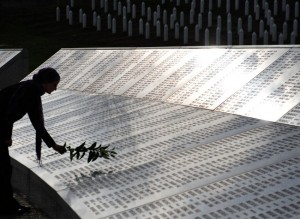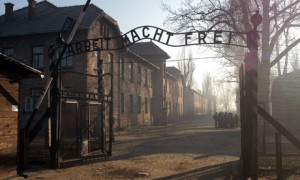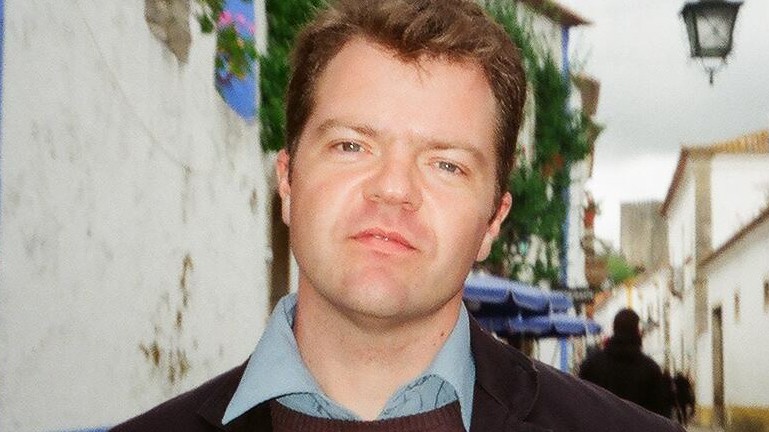Kingston University’s Dr Marko Attila Hoare was one of the specialists asked to participate on the BBC 2’s Holocaust Memorial Day programme on January 27.
Dr Hoare, who is an Associate Professor specialising in the history of Yugoslavia, Serbia and Bosnia-Hercegovina, talked about the Bosnian Genocide and its significance alongside Kemal Percanic, who survived the Bosnian death camp Omarska.
In a Q&A with The River, Dr Hoare discussed why it is still important to mark Holocaust Memorial Day and how we have not learned as much in hindsight after the Second World War as we would like to think.
Why did you specialise in the Bosnian Genocide and why it is a main focus of discussion on the programme?
“My mother comes from the former Yugoslavia, and the war there was breaking out in the early 1990s while I was an undergraduate student studying history at Cambridge. So it was impossible for me not to be gripped by the history I was watching unfolding, and to want to understand and explain it.
“2015 will mark the 20th anniversary of the Srebrenica massacre, which took place in the heart of Europe and is a case of genocide unambiguously recognised by the international courts. So it is fitting that the UK’s Holocaust Memorial Day event this year should give such focus to it.”

Why is it still important to mark Holocaust Memorial Day?
“The Holocaust is the exemplar of mass genocidal crime carried out by the highly educated elite of an advanced industrialised society. As such, it is a reminder of what we, in supposedly advanced and civilised Europe, are capable of.
“It represents a moral reference point of which we are all aware; we should be able to agree to define our values in opposition to those, of hatred and prejudice, which led to the Holocaust.
“Yet genocide still takes place periodically in the world today, and Holocaust Memorial Day is also necessary to remind us that such crimes are not just historical, but still occurring. Finally, commemorating the victims, of the Holocaust and other genocides, is an end in itself.”
Has society as a whole learned anything from the Holocaust or are we just repeating old mistakes?
“Society has learned something, insofar as the dominant political culture in the democratic world considers racism and other forms of bigotry unacceptable, in principle at least, though there are always those trying to test the boundaries.
“However, the democratic world is still generally unwilling to halt genocide and other crimes of mass violence when they occur elsewhere; e.g. in Syria, for example. And even in the UK, we still partly subscribe to a eugenic culture that sees some categories of human beings as better off dead – particularly if they are disabled.
“We haven’t learned as much as we like to think.”

You went on the show alongside Kemal Pervanic – what was it like meeting a concentration-camp survivor?
“I have known Kemal for many years; he is an old friend. I have met many Bosnian genocide survivors and they are all different, with their own personal stories and perspectives.
“The most important point about them is that they are just like the rest of us – ordinary people. They got caught up in something unexpected and had to live through it, then rebuild their lives.
“Meeting people like Kemal remind us that these horrible things could have happened to any of us, if circumstances had been different.”
To watch the BBC 2 Holocaust Memorial Day programme, please click here.


I think this Marko comparing the civil war in Bosnia to the Holocaust is sick and disrespectful to the 6 million Jews who were killed during WWII. It’s clear he presents an anti-Serb bias because Bosnia was a war where all sides perished. How can it be considered genocide if the violence was not one sided, if on the Bosnian Muslim side, thousands of Jihadists from the Middle East came to slaughter Serbian civilians? This guy is hardly objective when it comes to ex-Yugoslavia conflicts.
“I think this Marko comparing the civil war in Bosnia to the Holocaust is sick and disrespectful to the 6 million Jews who were killed during WWII.”
This is pure bluster. You only ever see Serbian nationalists and their apologists saying this, I’ve never seen any Holocaust survivsers make this absurd claim.
” How can it be considered genocide if the violence was not one sided”
This is perhaps one of the most rediculious arguments I’ve ever heard. The qualification for genocide rests upon the intent and extent of the killings, not upon the behaviour of some of the victim people. In almost every single case of genocide in human history, save perhaps the Holocaust, the violence was not entirely one-sided.
” thousands of Jihadists from the Middle East came to slaughter Serbian civilians”
This is a tired old Serbian nationalist meme. The arrival of the foreign mujahadeen was entirely the result of the Serbian genocidal attack on BiH and the complicity of the UN and the EU, so Serbian nationalists really have nobody but themselves to blame. Serbian nationalists however, simply are unwilling to take any responsibility for the results of their selfish and brutal actions. Even then however, what the foreign mujihadeen did pales into insignificance in comparison to what the Chetniks did.
“This guy is hardly objective when it comes to ex-Yugoslavia conflicts.”
I love it whenever blatantly partisan commenters have the gall to whine about other’s supposed “bias”.
”Lying is the highest virtue of the Serbian people.”
”We lie to deceive ourselves, to console others, we lie for mercy, we lie to fight fear, to encourage ourselves, to hide our and somebody else’s misery. Lying is a trait of our patriotism and the proof of our innate intelligence. We lie creatively, imaginatively and inventively.”
– Dobrica Cosic, Serbian writer, political and Serb nationalist theorist.